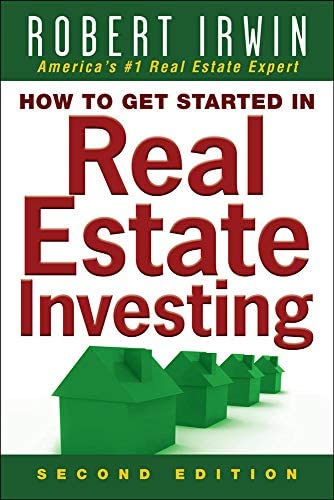
It's crucial to understand all costs involved in buying a home. Hidden and obvious costs can make buying a house quite expensive. You'll need to save up for a down payment, have the cash on hand for closing and other expenses that aren't easy to predict.
Your down payments are the most important cost associated with purchasing a home. They typically amount to between 3% and 10%. A larger down payment will allow you to avoid paying private mortgage insurance, which protects lenders in case of default.
Another big cost associated with house buying is the property taxes that you'll have to pay on your new home. These can be a monthly or yearly expense, depending on where you live and the type of property you have.
These costs may be negotiable with your mortgage lender. In most cases, however, they are paid by the home buyer.

During the real estate transaction, you'll need to pay fees for things like an appraisal and title searches. You will also have to pay a commission to a real agent and possibly a transfer tax.
Most real estate agents will charge commissions on the sale or purchase of a home. But, these fees are usually negotiable. The average brokerage fee is five to six per cent of the home's sales price.
You will have to pay HOA dues and any other associated costs like property insurance. A home warranty is required to protect your new home from major issues.
Although it may seem expensive to buy a house, renting is more affordable than buying one. It's also a great time to buy a home, as mortgage rates have fallen to historic lows.
Possessing a home can lead to many benefits, including a stronger sense in community and a higher net worth. The home you buy is an excellent investment that will continue to increase in value.

A lower monthly mortgage payment can be a benefit than renting. This is especially useful if you are moving to an area with high property prices.
Another important factor to consider when buying your next home is how long you intend to stay there and what kind of renovations are you planning to do. How much money you have available each year to pay for repairs and maintenance.
Your monthly mortgage payments can be anywhere from $2,300 to $3,000, and you'll have other costs, such as property taxes and homeowners insurance, to pay as well. In addition, you'll need to pay for utilities and any HOA fees that aren't included in your mortgage payments.
The purchase of a home is an important financial decision. While it may be exciting and terrifying, it will increase your quality of living. Here are some tips to help you make the right decisions for your situation.
FAQ
Should I use a broker to help me with my mortgage?
Consider a mortgage broker if you want to get a better rate. Brokers have relationships with many lenders and can negotiate for your benefit. Some brokers earn a commission from the lender. Before you sign up for a broker, make sure to check all fees.
What is reverse mortgage?
A reverse mortgage lets you borrow money directly from your home. You can draw money from your home equity, while you live in the property. There are two types: government-insured and conventional. With a conventional reverse mortgage, you must repay the amount borrowed plus an origination fee. If you choose FHA insurance, the repayment is covered by the federal government.
How do I calculate my interest rates?
Market conditions influence the market and interest rates can change daily. The average interest rate for the past week was 4.39%. To calculate your interest rate, multiply the number of years you will be financing by the interest rate. Example: You finance $200,000 in 20 years, at 5% per month, and your interest rate is 0.05 x 20.1%. This equals ten bases points.
What should I consider when investing my money in real estate
First, ensure that you have enough cash to invest in real property. If you don't have any money saved up for this purpose, you need to borrow from a bank or other financial institution. Aside from making sure that you aren't in debt, it is also important to know that defaulting on a loan will result in you not being able to repay the amount you borrowed.
You also need to make sure that you know how much you can spend on an investment property each month. This amount must cover all expenses related to owning the property, including mortgage payments, taxes, insurance, and maintenance costs.
It is important to ensure safety in the area you are looking at purchasing an investment property. It would be a good idea to live somewhere else while looking for properties.
Statistics
- This seems to be a more popular trend as the U.S. Census Bureau reports the homeownership rate was around 65% last year. (fortunebuilders.com)
- Over the past year, mortgage rates have hovered between 3.9 and 4.5 percent—a less significant increase. (fortunebuilders.com)
- It's possible to get approved for an FHA loan with a credit score as low as 580 and a down payment of 3.5% or a credit score as low as 500 and a 10% down payment.5 Specialty mortgage loans are loans that don't fit into the conventional or FHA loan categories. (investopedia.com)
- When it came to buying a home in 2015, experts predicted that mortgage rates would surpass five percent, yet interest rates remained below four percent. (fortunebuilders.com)
- The FHA sets its desirable debt-to-income ratio at 43%. (fortunebuilders.com)
External Links
How To
How to Manage a Property Rental
While renting your home can make you extra money, there are many things that you should think about before making the decision. We'll help you understand what to look for when renting out your home.
Here are the basics to help you start thinking about renting out a home.
-
What should I consider first? You need to assess your finances before renting out your home. If you have outstanding debts like credit card bills or mortgage payment, you may find it difficult to pay someone else to stay in your home while that you're gone. Your budget should be reviewed - you may not have enough money to cover your monthly expenses like rent, utilities, insurance, and so on. This might be a waste of money.
-
How much is it to rent my home? The cost of renting your home depends on many factors. These factors include the location, size and condition of your home, as well as season. Keep in mind that prices will vary depending upon where you live. So don't expect to find the same price everywhere. Rightmove estimates that the market average for renting a 1-bedroom flat in London costs around PS1,400 per monthly. If you were to rent your entire house, this would mean that you would earn approximately PS2,800 per year. This is a good amount, but you might make significantly less if you let only a portion of your home.
-
Is it worth it? Although there are always risks involved in doing something new, if you can make extra money, why not? You need to be clear about what you're signing before you do anything. It's not enough to be able to spend more time with your loved ones. You'll need to manage maintenance costs, repair and clean up the house. Make sure you've thought through these issues carefully before signing up!
-
Are there any benefits? It's clear that renting out your home is expensive. But, you want to look at the potential benefits. Renting your home is a great way to get out of the grind and enjoy some peace from your day. It's more fun than working every day, regardless of what you choose. If you plan well, renting could become a full-time occupation.
-
How do I find tenants? Once you decide that you want to rent out your property, it is important to properly market it. Make sure to list your property online via websites such as Rightmove. Once potential tenants reach out to you, schedule an interview. This will allow you to assess their suitability, and make sure they are financially sound enough to move into your house.
-
How can I make sure that I'm protected? If you are worried about your home being empty, it is important to make sure you have adequate protection against fire, theft, and damage. You will need insurance for your home. This can be done through your landlord directly or with an agent. Your landlord will typically require you to add them in as additional insured. This covers damages to your property that occur while you aren't there. This does not apply if you are living overseas or if your landlord hasn't been registered with UK insurers. You will need to register with an International Insurer in this instance.
-
You might feel like you can't afford to spend all day looking for tenants, especially if you work outside the home. It's important to advertise your property with the best possible attitude. You should create a professional-looking website and post ads online, including in local newspapers and magazines. A complete application form will be required and references must be provided. Some people prefer to do everything themselves while others hire agents who will take care of all the details. You'll need to be ready to answer questions during interviews.
-
What do I do when I find my tenant. If you have a current lease in place you'll need inform your tenant about changes, such moving dates. If this is not possible, you may negotiate the length of your stay, deposit, as well as other details. Remember that even though you will be paid at the end of your tenancy, you still have to pay utilities.
-
How do I collect my rent? When the time comes for you to collect the rent you need to make sure that your tenant has been paying their rent. You'll need remind them about their obligations if they have not. You can subtract any outstanding rent payments before sending them a final check. You can call the police if you are having trouble getting hold of your tenant. They won't normally evict someone unless there's been a breach of contract, but they can issue a warrant if necessary.
-
How can I avoid problems? Renting out your house can make you a lot of money, but it's also important to stay safe. Consider installing security cameras and smoke alarms. You should also check that your neighbors' permissions allow you to leave your property unlocked at night and that you have adequate insurance. Finally, you should never let strangers into your house, even if they say they're moving in next door.